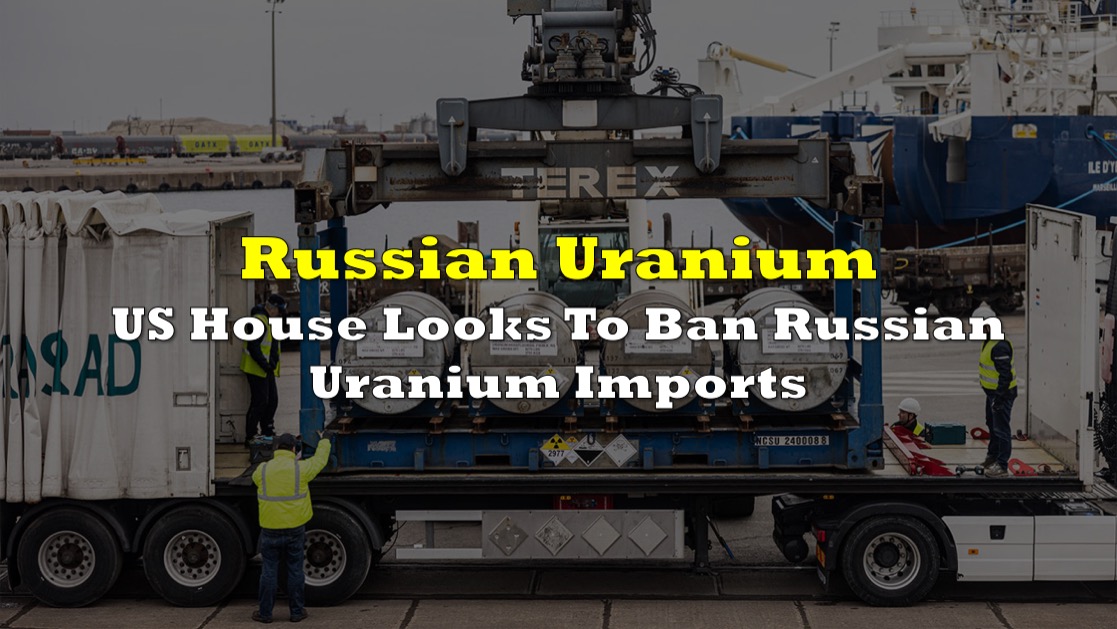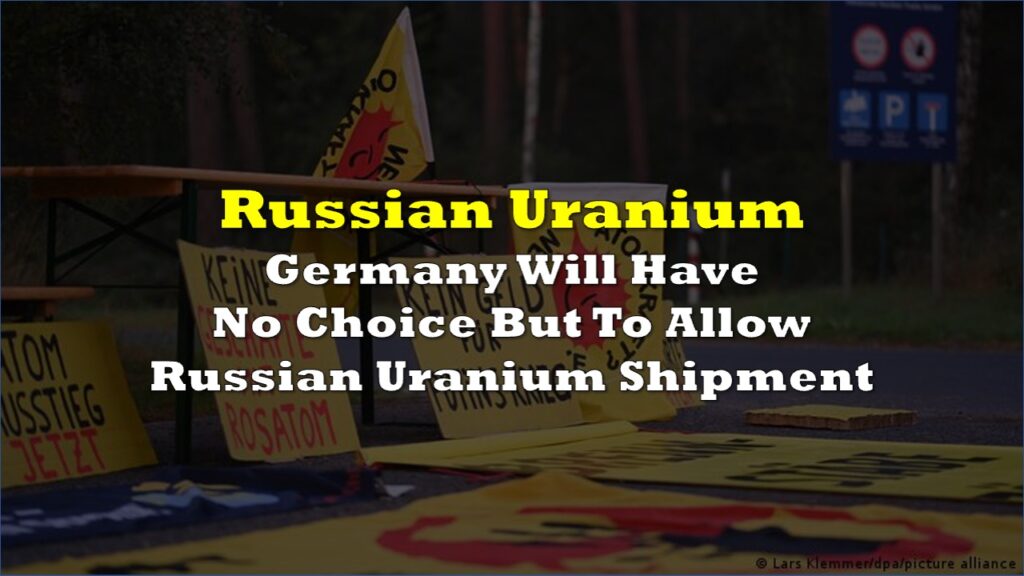A bill prohibiting Russian uranium shipments into the US gained traction on Tuesday when it passed a committee in the US House of Representatives. The bill, sponsored by Republican Representative Cathy McMorris Rodgers, was approved 18-12 in the House energy, climate, and grid security subcommittee.
Following Russia’s invasion of Ukraine last year, the US restricted imports of its oil and put a price ceiling with other Western countries on sea-borne exports of its crude and oil products, but it has not prohibited imports of its uranium.
According to the US Energy Information Administration, the US imported around 14% of its uranium from Russia in 2021, compared to 35% from Kazakhstan and 15% from Canada. The country supplied only around 5% of the uranium utilized domestically that year.
“The war in Ukraine has made it abundantly clear we cannot be at the whims of Russia for our fuel supply,” said Representative Jeff Duncan, the chair of the committee. “It should be a bipartisan, national security objective to wean the United States industry off Russian uranium imports.”
A similar bill has been referred to the Senate’s energy committee. The measure would have to pass both chambers of Congress and be approved by President Joe Biden before it becomes law.
The House bill includes exemptions that allow the import of low-enriched uranium from Russia if the US energy secretary determines there is no other supply available for the operation of a nuclear reactor or a US nuclear energy corporation, or if the shipments are in the national interest.
The waivers would gradually reduce allowable Russian uranium imports from approximately 578,900 kilograms (1,276,256 lb) in 2023 to around 459,000 kilos (1,011,921 lb) in 2027, with any waivers expiring in 2028.
Earlier in February, the US Congress pushed forward a bill entitled “H.R.1042 – To prohibit the importation into the United States of unirradiated low-enriched uranium that is produced in the Russian Federation, and for other purposes.”
“I think eventually [banning Russian uranium] will go into effect,” said Former US Energy Secretary Ernest Moniz in a Bloomberg interview. “But to be honest… this is one of the cases today where we simply need to import some of the enrichment services that Russia performs.”
As early as this year, the EU and the G7 were reportedly mulling imposing sanctions on Russian uranium. Russian enterprises that are still present in the European market, such as Lukoil and Rosatom, would be added to the sanctions list. The European Parliament also asks for a comprehensive and immediate ban on Russian imports of fossil fuels such as oil and uranium.
This comes as the US resurrected efforts to put US sanctions on Rosatom. The Biden administration and a bipartisan group of senators want any prohibition on Russian supplies to be accompanied by assistance for domestic nuclear fuel supply. Given the Republican-controlled House of Representatives, the US Department of Energy is considering transferring some of the $6 billion in cash for faltering US reactors to the domestic nuclear fuel project.
The renewed sanction talks follow a Washington Post report saying Rosatom has been working to supply Russia’s military with missile components, technology, and raw materials. The supplies were shipped to armament manufacturers who sell to Russia’s military, and some of those missiles are likely to have been used in Russia’s war against Ukraine.
Any sanctions that the US or the EU would impose due to Rosatom’s actions would have a much smaller effect on Russia’s economy than previous natural gas and oil penalties, and therefore would be more symbolic than impactful. Per Princeton University’s Frank von Hippel, Rosatom realizes about US$1.0 billion per year from uranium sales to the US and Europe.
Russia currently sits as the 6th biggest uranium exporter in the world, following Kazakhstan, Canada, Australia, Namibia, and Uzbekistan. However, Moscow’s real value in the uranium industry stems from its uranium enrichment capabilities, a process which creates nuclear fuel from mined uranium by increasing the percentage of Uranium-235. Russia has more than half the world’s enrichment supply and is responsible for 38% of the world’s uranium conversion capacity.
The raw material for most of Russia’s uranium exports comes from Kazakhstan. Should sanctions on Russian uranium exports be put in place, this would include a ban on processed uranium from Moscow.
Information for this briefing was found via Bloomberg, Reuters, and the sources mentioned. The author has no securities or affiliations related to this organization. Not a recommendation to buy or sell. Always do additional research and consult a professional before purchasing a security. The author holds no licenses.









